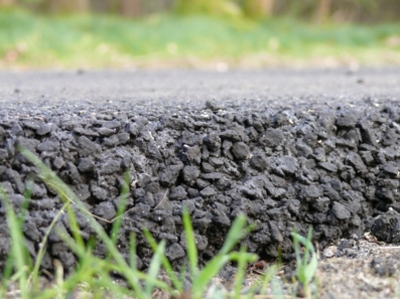Getting My A1 Professional Asphalt & Sealing Llc To Work
Table of ContentsA1 Professional Asphalt & Sealing Llc Fundamentals ExplainedThe smart Trick of A1 Professional Asphalt & Sealing Llc That Nobody is DiscussingFascination About A1 Professional Asphalt & Sealing LlcSome Known Questions About A1 Professional Asphalt & Sealing Llc.A1 Professional Asphalt & Sealing Llc Can Be Fun For Anyone
In its composition, asphalt consists largely of Bitumen integrated with various sorts of accumulation, such as sand or gravel. Pavement, alternatively, is a sort of concrete that consists of accumulations, cement, and water. a-1 asphalt. Depending on the area and usage of the used pavement product, a mixture of various chemical admixtures may be added to make it much more durable
What is the difference in between asphalt and blacktop driveways? Pavement can be made of either asphalt or concrete, with asphalt being smoother and much more resistant due to its binder, while concrete hardens via the healing process yet has a tendency to put on down over time due to weathering.
Examine This Report on A1 Professional Asphalt & Sealing Llc
It is additionally more lightweight and cost-efficient. How do I keep my asphalt driveway? One of the most crucial component of preserving an asphalt driveway is ensuring it's effectively sealed. This secures the surface of your driveway from harsh weather condition, salt, and other harsh products. https://slides.com/a1asphaltseal. You should reseal the surface area every two or 3 years for optimal defense.
Asphalt and pavement are typical components on highways all over. Despite their similarities, these two products have some essential distinctions that make each appropriate for various situations.
Understanding these differences can help make certain a suitable choice is made when choosing a surface remedy. You can find out more posts similar to this one right here.
The Best Guide To A1 Professional Asphalt & Sealing Llc
Lately, State highway companies and FHWA were astonished by an exploration: The private use re-refined engine oil bottoms in asphalt is prevalent. Simon Hesp, Queens University (Kingston, Ontario) Asphalt is the sticky black residue that is left over from the processing of unrefined oil. It has been made use of in leading for more than a a century.

The asphalt, which works as the sidewalk's binder, is likewise one of the most costly part of the cost of the product for paving roads. The weight of an asphalt pavement differs depending upon the accumulation kind, the asphalt, and the air void web content. Utilizing an ordinary instance of 112 extra pounds per square yard per inch of thickness, a 1-mile (1.6-kilometer)-long, four-lane freeway with a 4-inch (10-centimeter) lift and 12-foot (3.6-meter)-broad lanes evaluates about 6,300 bunches (5,700 metric heaps).
The 300 lots of asphalt in 2002 would certainly have cost around $48,000. By 2006 this would certainly have enhanced to $96,000 and by 2012 to $183,000. That is a boost of about $135,000 for each mile of highway in simply one decade. The increasing price of asphalt had a major effect on the price of building pavements, which increased interest in finding methods to lower costs.
The 10-Second Trick For A1 Professional Asphalt & Sealing Llc
RAP currently consists of asphalt, albeit aged material that does not have the exact same buildings of fresh asphalt. Throughout a corridor discussion at a 2010 technological conference, Matt Mueller, after that a State designer of materials from Illinois, disclosed that his department of transport had actually located phosphorous in among the asphalt binders it was buying.

The supplier denied including PPA, yet decreased to reveal what had actually been included in the binder. When pressed by the department of transport, the vendor disclosed that it was adding what it called an asphalt extendernow understood to be re-refined engine oil bases (REOB). REOB contains a percentage of phosphorus, which is what department drug stores at first recognized.
"No one knew this product was being included to asphalt, had seen any research on just how this could affect performance of hot-mix asphalt sidewalks, or understood for for how long and how extensively it was being utilized throughout the nation," says Mueller. After discussions at the technological his comment is here meeting, he states, "It swiftly went from being just a concern in Illinois to ending up being a national and worldwide problem." Part of the goal of the Chemistry Lab at TFHRC is to develop new test approaches.
The buildings of asphalt binders vary extensively depending on the source of the crude oil and the refining procedure used. For low winter temperature levels, softer asphalts are required to stay clear of splitting.
10 Easy Facts About A1 Professional Asphalt & Sealing Llc Shown
A machine called a vibrant shear rheometer (DSR) was presented to the industry throughout the Strategic Freeway Research study Program's research study task, which ranged from 1987 to 1992. The DSR is currently the industry standard for determining the viscoelastic residential properties of paving asphalt. Nevertheless, the device was not created for the paving industry.
The DSR makes it possible for product designers to develop tooth paste with the appropriate consistency so that it can be pressed from a tube but not fall off the tooth brush. The DSR examinations binder positioned in between two identical plates concerning the size of a quarter. One of the plates steps and the equipment determines the viscoelastic residential properties of the asphalt.